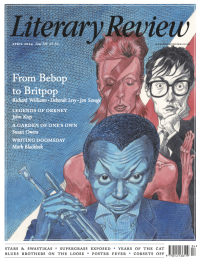Sarah Dunant
We Need to Talk About Democracy
Adventures in Democracy: The Turbulent World of People Power
By Erica Benner
Allen Lane 224pp £25
This is a year of elections. Almost half of the world’s eight billion people will be eligible to cast a vote in 2024 to determine how and by whom they are governed. Any self-respecting reincarnated Athenian philosopher would be heartened by such progress. Giving power to the demos (a category now expanded to include all genders and races) has to be a sign of history going in the right direction. Certainly, following the end of the Second World War, when we fervently needed to believe in the decency of humanity, democracy was promoted, celebrated and extended as never before, a promotion aided by the soft (though that would not be everyone’s adjective of choice) power of America.
Alas, since the turn of the millennium, a good deal of democracy’s shine has been rubbed away. Witness the reality facing some of those four billion voters. India is dominated by a self-proclaimed Hindu nationalist with malign intentions towards a significant minority of the electorate. South Africa, only thirty years ago the poster boy for major political change, is now in effect a one-party state, the absence of a credible opposition leading to internal corruption and huge voter dissatisfaction. Britain? Well, pick your own beef. Then, of course, there’s America, where close to half of the electorate would prefer not to vote for either candidate, while another 25 per cent are a hysterical rent-a-crowd for a man promising to take a torch to the foundations of the democratic state.
Not surprisingly, there is no shortage of voices opining on this apparent moment of crisis for democracy. The political philosopher Erica Benner has now added hers to the mix. An American by birth and now in her sixties, Benner grew up in and has lived and taught in an

Sign Up to our newsletter
Receive free articles, highlights from the archive, news, details of prizes, and much more.@Lit_Review
Follow Literary Review on Twitter
Twitter Feed
It wasn’t until 1825 that Pepys’s diary became available for the first time. How it was eventually decrypted and published is a story of subterfuge and duplicity.
Kate Loveman tells the tale.
Kate Loveman - Publishing Pepys
Kate Loveman: Publishing Pepys
literaryreview.co.uk
Arthur Christopher Benson was a pillar of the Edwardian establishment. He was supremely well connected. As his newly published diaries reveal, he was also riotously indiscreet.
Piers Brendon compares Benson’s journals to others from the 20th century.
Piers Brendon - Land of Dopes & Tories
Piers Brendon: Land of Dopes & Tories - The Benson Diaries: Selections from the Diary of Arthur Christopher Benson by Eamon Duffy & Ronald Hyam (edd)
literaryreview.co.uk
Of the siblings Gwen and Augustus John, it is Augustus who has commanded most attention from collectors and connoisseurs.
Was he really the finer artist, asks Tanya Harrod, or is it time Gwen emerged from her brother’s shadow?
Tanya Harrod - Cut from the Same Canvas
Tanya Harrod: Cut from the Same Canvas - Artists, Siblings, Visionaries: The Lives and Loves of Gwen and Augustus John by Judith Mackrell
literaryreview.co.uk